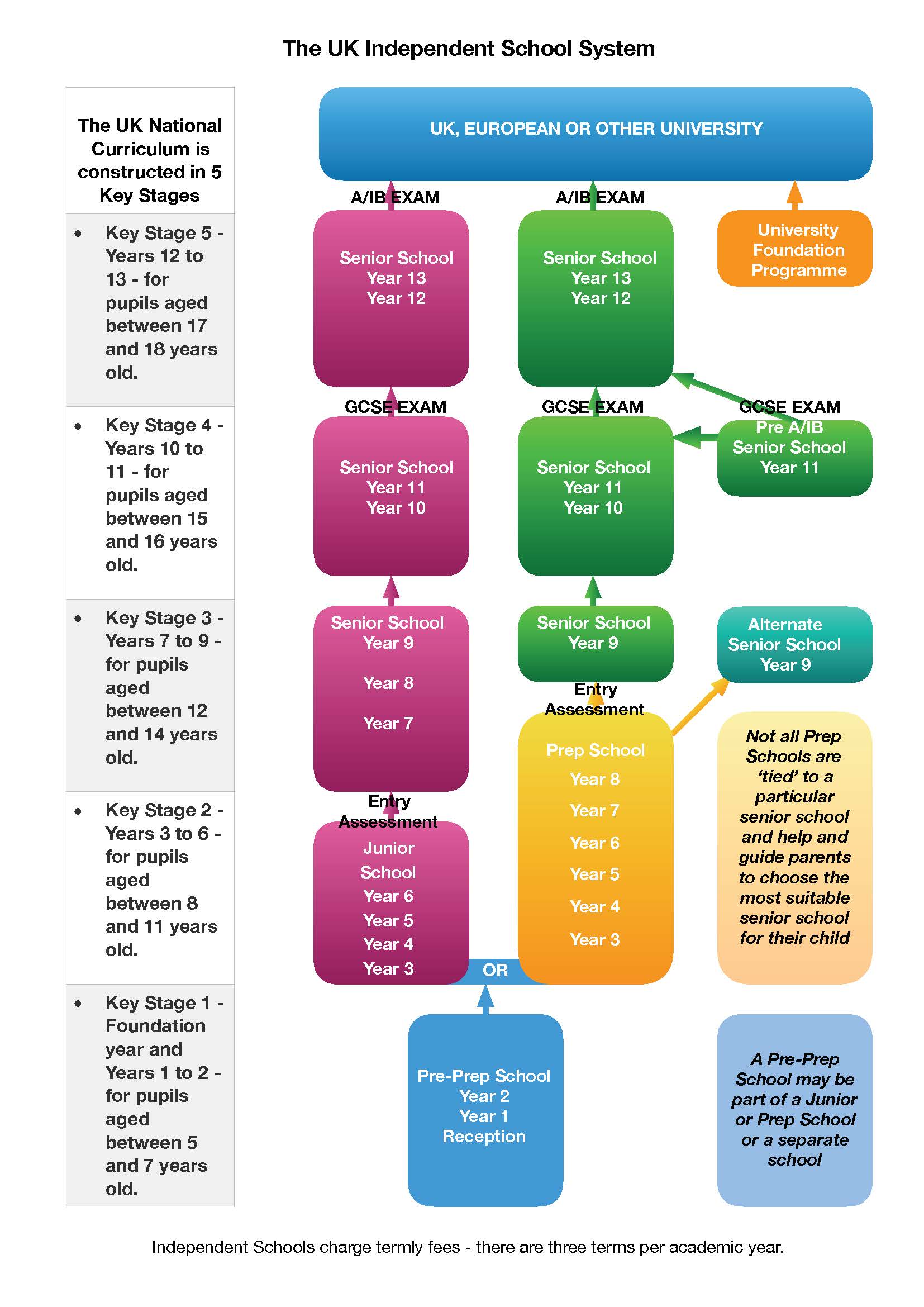UK Education System
Independent or private schools in the UK are separate from the schools run by the state. Parents pay fees for their children to attend independent schools, which are regularly and rigorously inspected to ensure they meet the highest standards. Independent schools in the UK have a reputation for excellence throughout the world.
The school year in the UK begins in early September and runs until the following July. Students attend School for about thirty-four weeks of the year covering three terms of 11 to 12 weeks duration. While September is the normal start for most pupils, many UK Independent Schools accept pupils at the start of any of the three terms, though this will depend on public examination preparation.
School holidays, when overseas students normally return home, occur at Christmas (the last two weeks of December and the first week of January), Easter (normally the first two or three weeks of April) and the longer Summer holiday (mid July to the first week of September).
Each term has a mid term break (half term) usually lasting seven to ten days. Students from overseas often remain in the UK for these short breaks.
Students between the ages of 5 and 11 or 13 attend a preparatory school (sometimes called a Junior School or Prep). At the age of 11 or 13, they change to a senior school (sometimes called a secondary School or College).
A preparatory school may be attached to a senior school or prepare students for a range of senior schools. Transfer from one to the other is well-managed and the head will keep parents fully informed of the senior school options. Prep schools are an ideal start for overseas students wanting to join a senior school on the same basis and at the same time as the UK students. UK senior schools are a fine preparation for university life and schools work hard to ensure that students achieve the best University place they possibly can.
Senior school pupils are prepared for the national GCSE examinations at age 16, then for AS Levels (a one year course) and then on to A-levels and/or Vocational A-levels (a two year course including the year for AS Levels). There are options for overseas pupils to take A-levels over a three-year period depending on their level of English. An increasing number of schools are offering the International Baccalaureate (IB) diploma.
Independent Schools in the UK are dedicated to providing the very best education and care for their students. Many students living in the UK choose to go to a boarding School. The overseas students who join them will quickly realise that they will be well cared for in a family environment with wonderful opportunities.
Houseparents serve as substitute mums and dads and ensure that there is always someone to turn to in times of need. Houseparents will also help to arrange weekend trips, liaise with parents about travel and half term holidays, help with communications home, monitor academic progress and ensure students work hard, eat well, sleep well and are happy and healthy individuals.
Independent school facilities are extensive and the opportunity to be involved in music, drama, art, sport, technology, friendships and community activities after school and at weekends is one of the major attractions of boarding life.

